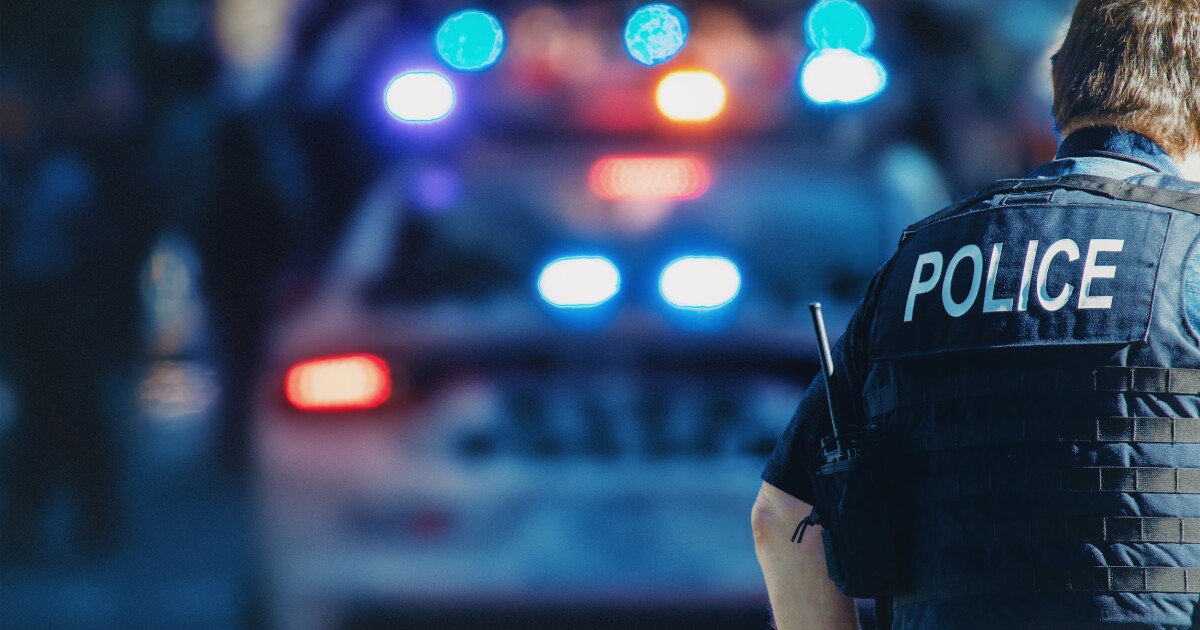

Three years after George Floyd’s death at the hands of Minneapolis police officers, the criminal justice movement he inspired has come nearly full circle.
The police departments whose budgets the movement sought to slash are flush with cash again. The officers labeled as agents of systemic racism are fielding offers of hefty signing bonuses from city governments eager to welcome them.
DESANTIS DISMISSES NAACP TRAVEL ADVISORY FOR FLORIDA: ‘ARE YOU KIDDING ME?’
Calls for more lenient treatment of offenders have given way to calls, from even those sympathetic to the cause, for more aggressive enforcement of the law.
Criminal justice reform advocacy did not begin on May 25, 2020, when a police officer knelt on Floyd’s neck until he died in a brutal encounter captured on video. Nor has it ended with the spike in crime that’s hit major cities since then.
But progressive criminal justice reform burst into the mainstream so forcefully three years ago that lawmakers ushered in changes they may now find difficult to reverse.
“It’s a well-intentioned catastrophe,” Douglas Carswell, president and CEO of the Mississippi Center for Public Policy, told the Washington Examiner. “We can now begin to see what the effect of the defund-the-police, anti-incarceration agenda is having, and it’s been catastrophic.”
Some cities embraced the criminal justice reform movement more enthusiastically than others.
In Portland, Oregon, for example, local officials cut $15 million from their police budget in 2020 as the city experienced one of the longest and most heated racial protests in the country.
Minneapolis officials put a measure on the ballot in 2021 that would abolish the city’s police department and replace it with a reimagined Department of Public Safety.
Then-Chicago Mayor Lori Lightfoot, a Democrat, called on her city’s police department in 2020 to shed millions of dollars from its own budget by not filling vacant police jobs.
Three years later, virtually all of these cities had reversed course.
Portland leaders have added millions back to the police bureau’s budget.
Voters rejected the Minneapolis ballot measure, and the Minneapolis Police Department’s budget is larger now than before Floyd’s death.
In Chicago, Lightfoot proposed a $64 million funding boost to its police budget for this fiscal year, and the Chicago Police Department in March launched new programs to recruit officers from other cities to address its officer shortage.
Still, some of the reforms implemented over the past few years remain in place in some jurisdictions, and some progressive candidates have continued to win races even as the criminal justice reform movement has lost steam.
Manhattan District Attorney Alvin Bragg won election in 2021 on a progressive platform despite the victory of Eric Adams, a tough-on-crime Democrat, in the mayoral contest that same year.
Mayor Brandon Johnson won election earlier this year in Chicago despite facing attacks from opponents on his past support for defunding police.
Nationally, opposition to the criminal justice agenda pushed by Democrats did not prove as politically salient as Republicans had hoped in the 2022 midterm elections.
The movement that caught fire in 2020 was so powerful, according to Christopher Ferguson, a psychology professor at Stetson University in Florida, in part because people had an inaccurate sense of the problems in policing.
“Like a lot of moral panics, it really is just a lot of beliefs that are founded on people’s fundamental lack of information about what’s happening,” Ferguson, who has studied the nexus of racial relations and police violence, told the Washington Examiner.
Ferguson noted that black men are, in general, “overrepresented as perpetrators and victims” of crime.
“What you see is that, basically, the proportion of individuals who are unarmed and shot by police matches the proportion of individuals who commit crimes,” he said.
More white people are killed by police each year than black people, data show, but black people are shot by police at a higher rate relative to their share of the overall U.S. population than white people. That’s where supporters of police reform draw their argument for eradicating systemic racism from law enforcement agencies.
Police brutality against people of color served as the underpinning of the movement that sprang up after Floyd’s murder, although it broadened to include demands for change across the criminal justice system.
Those changes have, in some cases, led to dramatic increases in crime.
In Washington, D.C., carjackings have risen 116% this year over the same period last year. Murders, robberies, and sex abuse cases were all up by double-digit percentages over last year, according to the city’s police department.
The increase in crime has followed a series of reforms and attempted reforms from district leaders, including a 2020 bill aiming to reduce sentences for young offenders and a proposal to prohibit the police from pursuing most suspects in a car.
Even where the most violent forms of crime have abated in the past year, other types of crime remain widespread.
In Philadelphia, homicides have fallen slightly so far this year from the highs they hit in 2021 and 2022 but are still higher than any other year since 2007.
Retail theft has increased 40% over the same time last year, according to the Philadelphia Police Department, and the number of stolen cars has increased 87%.
Shoplifting in Atlanta is up 20%, and motor vehicle theft is up 66%, the city’s police department said.
Carswell said enormous changes need to be made to reverse the crime wave.
CLICK HERE TO READ MORE FROM THE WASHINGTON EXAMINER
“You need to restore law and order. You need to restore police control of the cities,” he said. “You need to shift attitudes.”
For a generation of residents in major cities, Carswell said, society must “normalize the idea that crime is wrong.”






